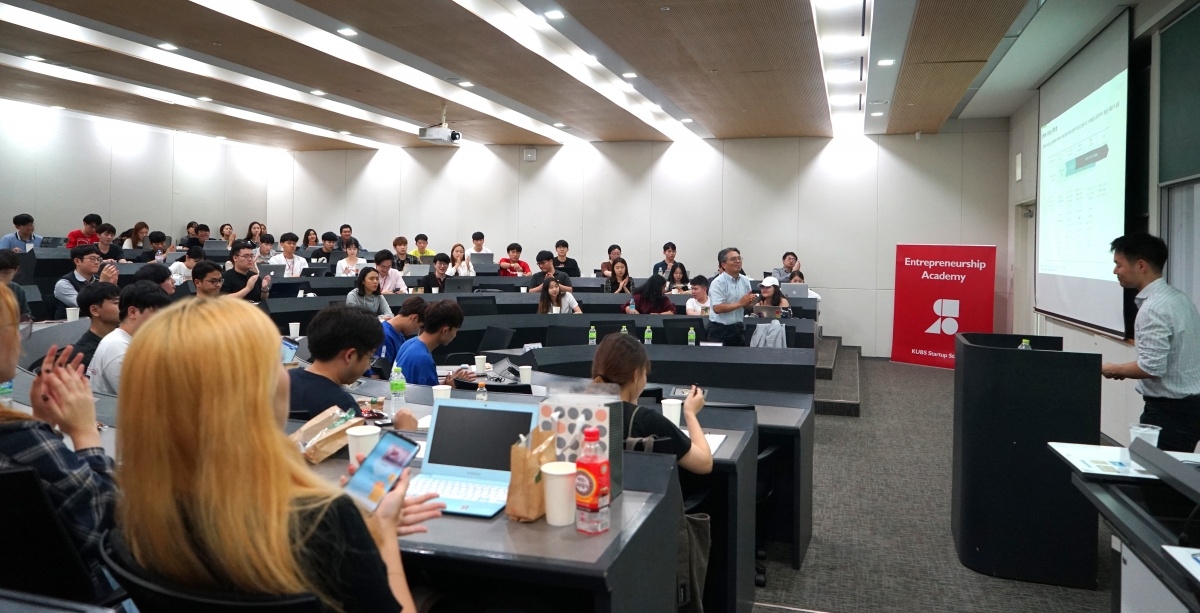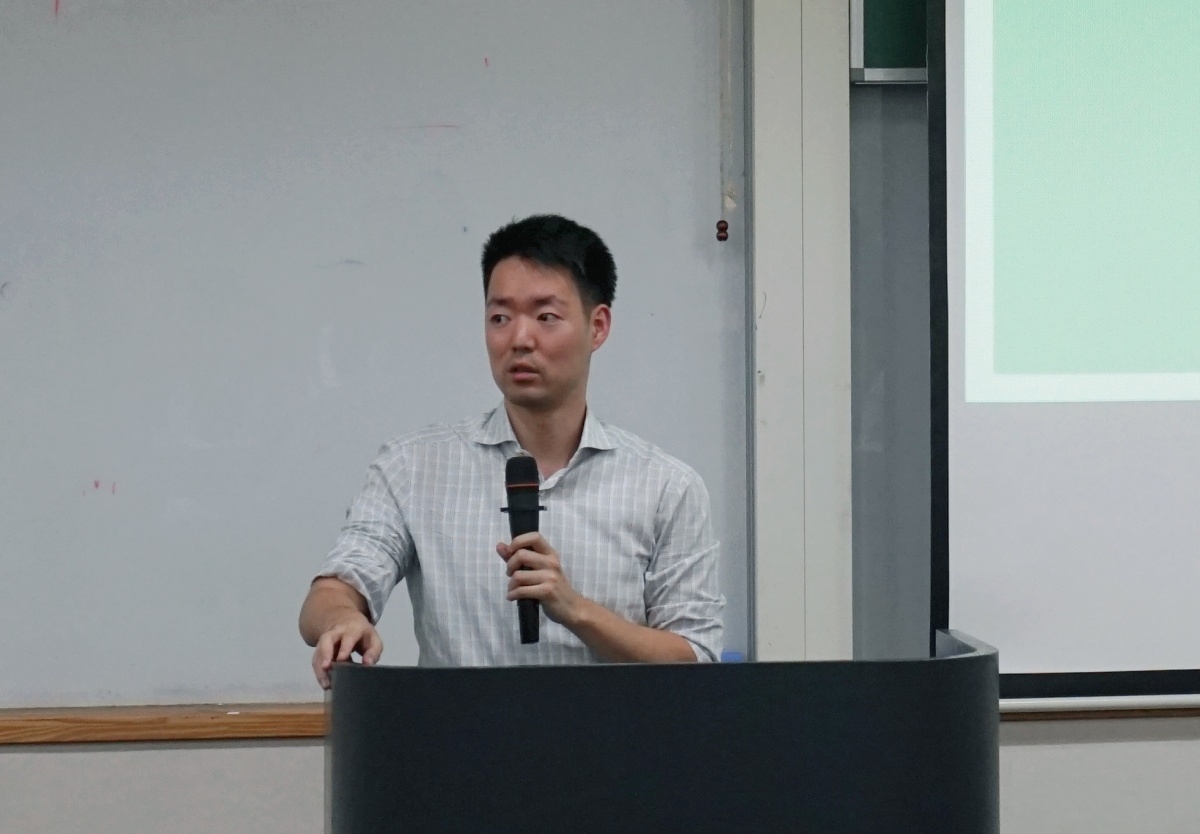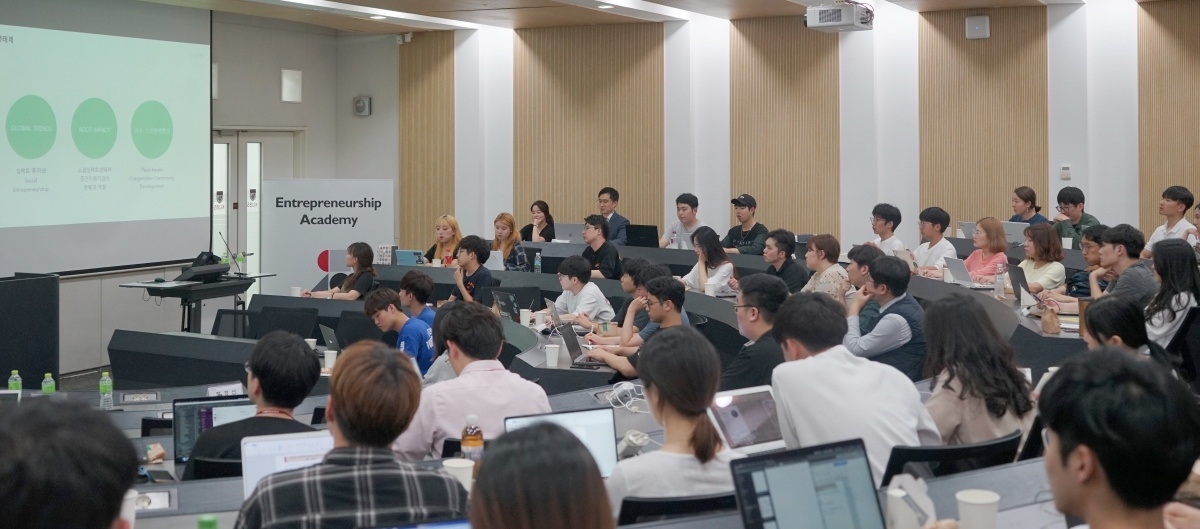[Lecture Series #5] Root Impact’s Jung Kyung-Sun: “Building an Impact Business Ecosystem”

The fifth lecture on the “Lecture Series” in 2019 hosted by Korea University Business School (Dean= Kim Jae Wook) and the KUBS Startup Station (Director= Kim Hicheon) was held at B205 of Hyundai Motor Company Hall on September 17th. Chung Kyung-Sun, who is the head of HGI, an impact investment firm, and the CIO (Chief Imaging Officer) of Root Impact, an organization that encourages the creation of a social corporate ecosystem, appeared as the speaker. Jung gave a lecture on the topic of “Global Trends in Impact Business and Introducing Social Venture Valley of Seongsudong”
Jung first explained the global trend of impact business. “Most of the companies are moving away from the traditional discourse of maximizing the interests of their shareholders,” he said. “We share the view that the purpose of capital is to provide a free and fair life experience for everyone.” “As a result of the destructive work that mankind has done in the past, we are spending a lot of money on the government level, and we have to spend it,” he said. “So the scale of the impact business will only grow.” Jung stressed that the impact business ecosystem should be created in this regard.

Jung Kyung Sun then introduced Root Impact in which he is serving as a CIO. “The impact business ecosystem is not established simply with a single businessman and a single social enterprise,” Jung said. “Root Impact was established in 2012 with a vision of balanced growth and becoming the root of various stakeholders.” “I want to help people who strive for social problems in the big framework of social enterprises,” he said. “We’re currently creating a co-working space, a “heyground,” providing space for entrepreneurs, and we’re working on a lot of projects, including the co-living house, the “Dwell house” and the co-learning community program.”
Jung also explained about the Social Venture Valley located in Seongsudong. “It is the Seongsudong Social Venture Valley that has physically implemented the aforementioned concept of ecosystem,” he said. “We are working together with the idea that companies that have entered the market may be considered competitors, but eventually companies are working toward universal good.” On the social venture valley in Seongsudong, he added, “This is a significant expansion of the impact ecosystem.”
Many students asked questions in the question-and-answer session that followed after the lecture. One Business student asked what the contingency plan would be when many impact business startups are often relying on support from the government or large companies. “In principle, it is right to create a program that does not incur losses without support,” Jung said. “We need to focus on the essence of a start-up and lay the foundation for explosive growth when we receive investment.”

The KUBS Startup Station is providing start-up education every semester through the “Lecture on demand” series, which is a working-level special lecture series, and the “Lecture series,” which is a special lecture series on startups and ventures. The special lectures are open courses, and any student interested in starting a business as well as stakeholders of the tenant companies can participate. For related inquiries, call the startup station (02-3290-1699).


